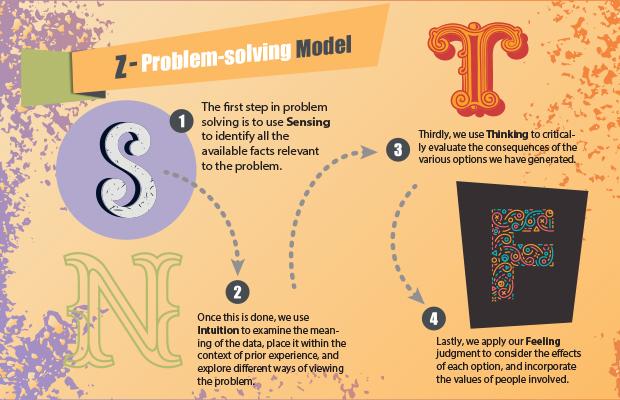Adapt or Manage: How Do You Approach Time?
My two youngest children, in grades 11 and 12, had the opportunity to take Advanced Placement Environmental Science together. For them, this was exciting since they get along very well, and have a keen interest in the environment and saving the earth. They have similar personality styles, aside from the last letter of their four-letter type: my son prefers ESFP (Extraversion, Sensing, Feeling, Perceiving) whereas my daughter prefers ESFJ (Extraversion, Sensing, Feeling, Judging). This last letter and preference indicates an important distinction in their personalities, as preferences for Judging and Perceiving determine how people approach established deadlines.
A major project was assigned where they had to create a map of our home showing energy consumption along with costs and environmental impact. My daughter began her project a week in advance and spent hours putting it together. Each day she spent time on it to get it just right. She really wanted to do a great job, get it perfect, and impress her teacher. I have learned over the years that although my son is not an early-starter, he will get his work done but performs better when pressure-prompted, so I try to trust his process. This is not easy for me, with a preference for Judging myself, I prefer a schedule and a plan to get projects completed. As you can imagine, my daughter and I are often on the same page! Knowing how hard she worked throughout the week and having heard nothing from my son, I agonized over when to step in. Finally, two hours before the project was due, I caved in and asked my son how his project was going. His response was "What project?" Yikes! He quickly realized by my reaction which project I was referring to. He said, "No worries mom, I will get it done." He had not even begun but planned to complete it on time.
Keep in mind they are both good students and grades matter to them. Sure enough, he completed the project on time and received a good grade (not as good as his sister, mind you, but that is another story). Until he had to do the work, he enjoyed the other options that presented themselves to him, often involving play and friends. I still check in to make sure he is completing the work he needs to do, but I have accepted over time to trust his process even though it is very different from my own. Time management is something we have always had to work on, but he is getting better with it the older he gets.
As parents we have our own perception of our children; I have always been intrigued with how other adults see my kids. I reached out to their teacher on another matter, and she shared how much she enjoys having both my kids in her virtual Zoom class remarking on how their personalities are so different. I had to smile over that one. My daughter has her camera on and is fully engaged in the class, whereas my son is more laid back and aloof, often with his camera pointed to the ceiling, involved but only as needed. This difference, in part, expresses through their preferences for Judging and Perceiving, where a preference for Judging often leads one to be more focused and engaged, and Perceiving types typically have a more open and meandering style.
Clearly, different approaches bring forth different reactions. My son was relaxed enough to finish on time even with a short deadline, while my daughter and I were freaking out! My daughter, on the other hand, gave herself enough time to plan and complete the project at a high quality, which for her, alleviated stress and anxiety. Knowing how you work best is the key to success. Letting your children work in the way that works best for them is their key to success. As a parent, however, this can lead to some of our greatest frustrations, yet can give rise to one of our most teachable moments.



_thumb.png)








































































x.png)
_thumb.png)
.png)

.png)
.png)

